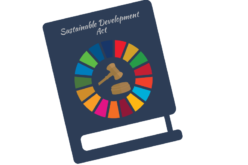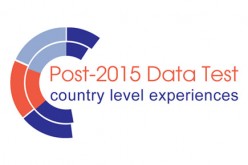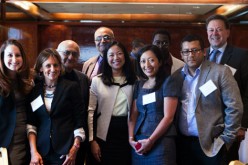The Common African Position on the Post-2015 Development Agenda: A unique opportunity for Africa to be heard
This post has been written by Ibrahima Hathie, research director at IPAR Senegal. He is currently working on a study focused on the African position in the post-2015 debate as part of the Southern Voice Initiative.
The Millennium Development Goals (MDGs) have been praised for their ability to focus effort and attention of the international community on key issues relevant to the future of the majority of the world population. Despite this irrefutable success, the MDGs have been highly criticized for being donor oriented. The lack of voice and ownership of the intended beneficiaries has also been recognized as a major weakness. Learning from this experience, the participation of various stakeholders has become central to the formulation process of the post 2015 development goals. Indeed, the last two years have witnessed extensive discussions on the post-2015 international development agenda. Alongside the UN-led global consultations, several autonomous processes have provided substantial inputs to the global debates.
A number of institutional reports are being produced among which the influential document of the High Level Panel (HLP) of Eminent Persons on the Post 2015 development agenda. The HLP proposed five transformative shifts including “leave no one behind”. Accordingly, “we should ensure that no person – regardless of ethnicity, gender, geography, disability, race or other status – is denied universal human rights and basic economic opportunities”. However, if we want to achieve this aspiration, we must ensure that the various stakeholders are involved in the different processes. Effective participation is therefore critical and it is important to “leave no voice behind.” How did Africa manage to reconcile the need to listen to all stakeholders and the necessity to speak with one voice?
The Common African Position: One voice for the continent
The formulation process of the Common African Position (CAP) on the post-2015 development agenda is a good illustration of this dilemma. Two distinct periods can be observed. The first phase is concerned with national, regional, continental and online consultations led by four institutions (UNECA, UNDP/RBA, AUC and AfDB)[1]. Though the UN agencies have a strong influence, it is also this process that provided opportunities for Civil Society Organizations (CSOs) to have a genuine involvement.
The second phase can be traced to when the African Union (AU) Heads of state displayed their interest and decided to create a High Level Committee (HLC) of 10 Heads of state and government whose mandate was to elaborate the CAP with technical support from the previously mentioned four institutions. This phase was more expert driven and provided little room to CSOs contribution in spite of their attempts to join the technical team of the AU secretariat to ensure that the content of the CAP reflects the aspirations and needs of the communities they represent.
The CAP is based on this six pillars:
1. Structural economic transformation and inclusive growth
2. Science, technology and innovation
3. People-centred development
4. Environmental sustainability, natural resources management and disaster risk management
5. Peace and security
6. Finance and partnerships
The outcome was nevertheless admirable. Africa has managed a feat: despite its diversity, the continent succeeded in speaking with one voice. Will it be loud enough to be heard by the international community? Does it reflect the views of all African stakeholders?
A CSO gathering to discuss the CAP process and content
Recently, the Nairobi based NGO, ACORD, invited several CSOs in Dakar, Senegal, to discuss the CAP and explore ways to exert greater influence on the positioning of Africa as part of the forthcoming negotiations. When joining the meeting, I expected to get more insights into whether Africa’s priorities are in line with the current consensus at the global level regarding the post-2015 international agenda. Instead, the debate focused on the issues left out of the CAP or those marginalized despite being of high priority for major African groups. For instance, African women’s rights advocates reacted vigorously and urged the HLC to consider a standalone pillar on gender equality and advised mainstreaming gender across the entire framework. For these women’s groups, it is not enough to mention “gender equality and women’s empowerment” within pillar 3.
Another controversial subject is the treatment of youth employment, diluted into the same pillar as “harnessing Africa’s youth population”. Given the challenges that the youth bulge poses, several voices argued for more visibility and a better stand for youth employment.
Governance was also a hot topic because of its absence from the pillars. It was considered an enabler. For most participants, this status is unacceptable given the fact that poor governance has been an impediment to progress and is still a key problem in Africa.
The way forward
The Common African Position on the post-2015 development agenda is a success for two main reasons: (i) it departs from externally driven initiatives and put an emphasis on domestic resources; and (ii) it offers Africa an opportunity to speak with one voice and present a unified set of priorities into the upcoming negotiation process, thus strengthening Africa’s bargaining power and increasing the likelihood of a full integration of the African position into the global development agenda. The effectiveness of this negotiation framework depends on the extent to which it is adopted by African governments. Ownership of African priorities and willingness to align with them in the course of the international negotiation process will determine whether Africa has succeeded in getting its voice heard.
Despite their resentment, CSOs have had some definite influence on the outcome of the African position.The first fourpillarswere designed duringthe firstphase in whichcivil societyhad been very active. Now that the CAP has been adopted, it is too late to expect any tangible change in the near future with regard to the CAP document. Rather, African stakeholders in general, CSOs in particular, should engage in the next phase of translating the CAP into goals, targets and indicators. It is imperative that the Africanleadersare committed toensurequality participationin this lastphase. “Leave no voice behind” should be at the heart of their strategies.
[1]The United Nations Economic Commission for Africa (UNECA), the United Nations Development Programme, Regional Bureau for Africa (UNDP/RBA), the African Union Commission (AUC) and the African Development Bank (AfDB).
1,592 total views, 2 views today








